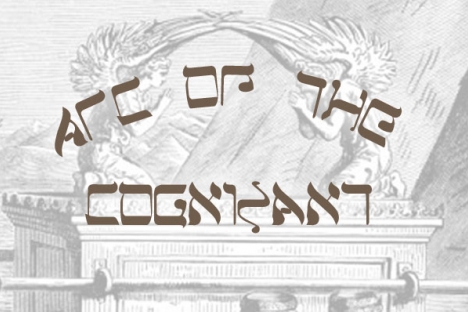COLUMN: Science, anti-science, pseudo-science . . . Part I
Science, anti-science, pseudo-science, non-science, pre-modern science: “There’s more under heaven and earth than is dreamt of” by homo sapiens
Definitions:
Science: what we commonly think of, when we hear the word. Medicine. Viruses. Stars. Atoms — all studied by science. We tend to think this knowledge is valuable.
Anti-science: an attitude, much seen during the Covid pandemic. Extreme disbelief in Authorities’ factual reality. Expressed in slogans: “Freedom!” No plan-demic!” “Hoax!”
Pseudo-science: knowledge rejected as valid by a ‘consensus in the global community of scientists.’ A preferred source of knowledge for those rejecting authorized medicine.
Non-sciences:a term of judgment. e.g., religion, art, history. Astrology? It is a matter of debate. For myself, astrology, ayurveda, acupuncture, are pre-modern disciplines.
Pre-modern science:f orms of knowledge in all previous cultures, including the West, by which humans have tried to understand their reality. Astrology; I Ching; religion.
Things said and read, inspiring this column
Once in a while, someone you know says something that really hits deeply or significantly. Case in point, my grandson to me this week: “What do you think the Other Side is like?” By which I knew he referred to the other side of ‘The Veil’, where a soul resides before incarnating into a physical human body.
I have told him the mythic tale of the angel who puts a finger to one’s lips just before we cross over the veil into a body, saying, “Shhh. You will forget all this!” The angel’s finger leaves an imprint on the face of every human being, no matter your race or ethnicity, which is why we all have that feature under our nose between the nostrils, on the upper lip. This is a myth. It is true in the way myth is truth. It is not a truth “proven” by the rules of evidence recognized by science or mathematics.
See the appendix for a link to a discussion of myth and truth.
After this encounter with my grandson, a ‘Facebook friend’ – not to be confused with a heart-connected person with whom I feel friendship – challenged me as “someone who claims to be an historian” because I so often cite Charles Eisenstein and his critique of science as we practice it in the West.
GH, the “friend”, declares Eisenstein is not worth my time or citations because he does not understand what science is and why it is Truth. I simply cannot begin that conversation with someone impervious to changing his mind about fundamentals, and with whom I feel no motive to engage in important topics about how I live life and think my thoughts and feel my feelings. I replied to him, “you be you.”
See the Footnote to view the entire quote from GH.
Finally, on the subject of ‘random things heard or read’ that make an impact, this:
“Can any reasonable human suppose this universe to be mere chaos? The correspondences between the behaviour of all things great and small – from the celestial bodies rolling in the heavens to the minute constituent parts of atoms – seem rather to point to a universal pattern of movement, governed by an Immutable Law of Change. Indeed, there is much reason to believe this Law to be eternal, to assume that universes take form and dissolve, aeon upon aeon, without deflecting its course any more than the birth and death of mayflies.”
— John Blofeld, I Ching, the Book of Change, Forward, 1963
And with all these thoughts and notions drifting in my mind, add the fact that in the past fortnight I have seen films whose subject matter is “the multiverse.”
I trust, reader, you can see that this column is going to be conjectural, not persuasive.
Skeptics, agnostics, believers: Public Scientific ‘atheism’ after Covid
It is no secret. The pandemic has changed what we think about science and revealed a deep, deep fracture in the public of democratic, open societies. The line is drawn between those who accept the authority of credentialed experts, and those who resist what they say are conspiracies and schemes to undermine individuals’ natural independence and control our lives — all to enrich and empower a tiny secret elite, including Bill Gates and the deep state in America.
See the Appendix for a note on deep state and conspiracy during Covid.
So, GH, you respect, honour, and admire, invest your trust and structure your life-choices — in the epistemology and methods of rational Western Science? Ger says yes. Science and its true practitioners deserve trust and belief in their facts. Is it the arbiter of fact? Again, I expect Ger and others of his ilk declare that it is.
I am an agnostic on the subject of whether science has the monopoly on reality-verification. It has a method. But I am unconvinced it has a monopoly on truth.
Because of the Covid pandemic, the question ‘Why Trust Science?’ has been put under the microscope of public skepticism; everyone has had to think about what they know, regarding science, medicine, and authority. Social media has made possible as never before in history the possibility of comparing and exchanging your facts and mine.
Laws of entropy and gravity – Laws of fate and mystery
When I was a teen, we used to be taught “Laws” of Physics, and Chemistry, about solid bodies, and motion, and entropy, as laid down by great early innovators like Newton, Boyle, Bayle, and Priestly. (Google those names if you have the interest.) High-school science, when I was a student, meant knowing these Laws.
With science lessons, we also learned in unspoken ways that the West was the best civilization we could possibly belong to. Ours had atomic energy, brain surgery, medicine that worked, air travel, mass media, etc. etc. Lucky us, to be Canadians. Our high material standard of living is rooted in science.
Long before we learned those school lessons, humans in earlier times learned Laws of astrology, and alchemy, and Hermetic magic, Galen’s medical theory, and ayurvedic medicine, and theI Ching. Those were some traditions of medieval Christendom, Greco-Roman classical times, Chinese and Indian civilization.
Fate and mystery, divine providence and occult knowledge, occupied human minds. They still do. Science does not provide a total nor adequate reply to the questions of the human condition. Well, not for me and others. For Ger, it might. He says so.
Thanks to Francis Bacon, Rene Descartes, Isaac Newton, Baruch Spinoza and a handful of men of genius who broke with the past and invented the modern consciousness of humankind, the West knows best. Ger is nodding his head vigorously: Science is factual, proven, evidentiary, objective, andrational.
You, dear reader, a Westerner, were born to this narrative of how we know truth.
The consensus about Western Science before the 21st century
What follows is a capsule statement of how history used to be taught to us in the West – and perhaps still is, but not if Charles Eisenstein and I can change the narrative. The Story of the People is his term for the ideology, an agreed-upon social construction that sociologists call “consensus reality.”
All of human history before the year 1600 or so, before the Age of Reason, the Western Enlightenment, and the Scientific Revolution – to apply the typical orthodox labels of historians in 1970 (when I was an undergrad) – was consigned to the realm of an unilluminated mental desert. Humans lived in intellectual night back then…
All eras and periods of human history and culture, from Sumeria to China, the Celts to the Amerindians, Africa to the western hemisphere/the Americas, upon any continent or in any civilization, fade in importance, relegated to a singular time of ignorant non-scientific thinking. The people of the past laboured under the huge burden of not knowing how to prove a belief and find evidence of what is true, real, solid fact.
Why? because the West was first to learn Science. The West and its mathematical-experimental philosophy of science, promoted by a materialist intelligentsia and rationalist cultural cognoscenti, entered the realm of true physicalist science.
Before the dawn of Western science, humanity stagnated, with no direction in our history. After that dawn, Progress, the new god, incarnated. Forward! to a future when we amass ever more knowledge and understand reality better and better.
Obviously I indulged myself in a bit of irony, a certain sarcastic tonality, when I wrote the few preceding paragraphs.
Humility
I am an agnostic about science, preferring the perspectives of Charles Eisenstein and Rupert Sheldrake on the claim of science to know the Truth. I will say more about the meaning of agnostic with regard to the truth-claims of science.
I believe the watchword for humans should be humility where and when we think we know anything. I insist we face this, that we be humble, to know just how limited we are, just how our knowing is circumscribed by the mystery of “being conscious.”
We do not know what consciousness is. Our knowledge therefore rests upon a foundation of not knowing how we “know.” We are part of the universe we study. This is a mystery. Consciousness studying itself may turn out to be an impossibility.
Socratic doubt is still a very valid principle. Socrates knew what the Delphic oracle decreed: gnothi seauton, “know thyself” –i.e., (as I comprehend this proverb) know what a human animal truly is, not merely one individual but the species of which it is a part. What is a human being? No answer is ever whole and entire.
Doubt is ultimately the most-realistic stance toward reality, but the Western mind has a problem with that lack of certainty. If we lack certainty, we would lack useful technology, which gives us control of matter. The West drives for control.
Uncertainty makes me an agnostic, and I think that would be the best option, as I will assert in my Conclusion.
Rebellion: the rejection of Western science
Funnily enough, among Westerners ourselves there has been a rebellion against Science, and a return of deep interest in Astrology, Tarot, freemasonry, kabbalah, yoga, tai chi, qi gong,I Ching, and a host of other esoteric and fantastical pre-modern bodies of knowledge. (And a new Law was even announced by Rhonda Byrne in her 1999 book, The Secret, called The Law of Attraction, which, to judge by its sales, seems to be believed by a lot of the public.)
The rebellion began, as you might expect, during the almost-revolutionary 1960s, when young people were aroused to reject a lot of their parents’ certainties, such as the war against communism in Viet Nam, the moral rightness of capitalism, and the repressive sexual codes of the Victorian era still operating in the 1950’s. Sex and drugs and rock ‘n’ roll were the flags we flew. We had some good times, and bad.
With that vast upswell among Youth in reaction to the older generation, came the resurgence of interest in anti-materialist occult traditions, arts and mysteries of pre-modern cultures. The capitalist Market, with its marvelous industry and rapid responsiveness to demand, has generated a multi-billionaire dollar business in products and services to supply the multitudes of consumers who want to know and practice these arts. If you don’t believe it, you must be living on some other planet.
The book to read on this subject, from a critical perspective, is Kurt Anderson, Fantasyland: how America went haywire. But for a more sympathetic point of view on the rebellion, one should read Fritjof Capra. http://www.sutrajournal.com/science-and-spirituality-by-fritjof-capra
This modern cultural efflorescence rejecting materialist scientific dogma and resurrecting pre-modern sciences, is called New Age by some. It preceded the pandemic, but most certainly the raw skepticism and mistrust of Western medical science had its foundation laid by the new-ager believers. New Agers are more likely to be found in the camp of people who reject the standard authorized narratives about Covid and vaccination, health-care mandates and medical expertise.
I know this from personal experience, since my daughter is quite the believer in Tarot and Wicca, and belongs to the local new-age tribe of non-vaccinated folk.
Consciousness and Cosmos
I want to make a short observation and a book recommendation here. The observation is, the basis of science as the West has practised it is humans’ drive to exercise power over our natural external world. This motivation is the explanatory thesis for Eisenstein, in all his writing and teaching: that the narrative of control is the guiding principle for scientists in the West; we Westerners have applied their knowledge to technologies for “conquering Nature” and thus we have our so-very-high material standard of living and species domination of the planet — that no one I know is willing to give up for more primitive living… Earth groans under our rule.
Francis Bacon said, at the very dawn of the Scientific Revolution in England, that “Knowledge is Power.” Science is the knowledge, Technology the power.
Richard Tarnas, skilled astrologer, respected historian, and academic researcher in psychedelic substances ( with Stanislav Grof ), has written profoundly about humans’ relationship to the universe in his thick tome, Cosmos and Psyche. Read Tarnas for marvellous insights into how humanity has come to the critical situation we face; extinction is a real threat, and solutions are beyond technological fixes.
(See the appendix for more on Tarnas.)
The “Demogra-Fate hypothesis”: brief reference to an unread new book
Again, I intend only a passing mention of an interesting new book; I know it only from reviews. I quote one here: “A gripping reflection of the murky future of Homo Sapiens.” This study by Nguyen Ba Thanh seems to be perfectly apt to my remark above about the peril humanity faces on our home planet, with extinction a possibility and our species’ apparent inability to change sufficiently to resolve the immense threat. The author “wonders if death by old age is civilization’s destiny.”
Our species, the inventor of the science and technology that can ruin the planet we depend on for life – but also the creator of so much else in the myriad cultures and forms of non-scientific knowledge I have been noting above – is figuratively on a journey, a path of motion in our history that some label “Evolution.”
“Evolution’s conceptual endpoint is finally reached when the brainiest wild species can, and does, party itself out of existence, consciously and merrily… When these app-addicted apes become fossils in this lost oasis, somewhere in a nearby galaxy another wild species will blindly evolve to boost brain power, create techology, solve hunger, enjoy fun, reproduce less.. This ancient cycle of blind evolution may have played out a zillion times across infinity.” —Harper’s, May 2022, p. 30
(See the appendix, following Part II, for more on Ba Thanh.)
Well, that is one perspective on our species.
Changing the species, to save the species
In my personal perspective on humans, I prefer to surrender to bewilderment and not-knowing. As I’ve already said, we ought to embrace vast and profound humility about our ability to know anything about our species’ purpose and fate.
“Solutions” to our existential challenges are not my point here. But I will essay a few remarks about how much humans can change.
I have already cited the Chinese I Ching as one among many ancient attempts by human consciousness to encompass the cosmos we live in and the Law governing change. Many cultures have attempted to comprehend change with imagination and art. Religion is an obvious such project. Pre-modern sciences are other ways.
Modern science is the way of the West. I am soaked and immersed in the West. From that cultural saturation, I am prepared to indulge science as it tries to find a way our species can meet challenges. Perhaps science can improve our species?
I am going to say a few words now about consciousness and the grey matter — the brain, where consciousness seems to reside — as science tries to understand and regulate it. I will advocate the scientific way to a change, for the sake of argument.
Materialist Sciences: Neuro-plasticity and neuro-diversity
I said consciousness “seems to reside in the grey matter”, the neurons of our physical brain, of which there are perhaps 90 billion in the average human head – with 1000 trillion synaptic links among those neurons.
[see https://www.nature.com/scitable/blog/brain-metrics/are_there_really_as_many/ and https://arxiv.org/abs/1906.01703 ]
It is indeed plausible to say that of all the wonders of the universe we are constantly exploring further with our scientific tools, none is more wondrous and mysterious than consciousness.
Is consciousness truly a ghost in the machinery of brain? Esoteric teaching says it can exist outside of matter. Perhaps, but for this purpose, I will leave that aside and assume mind needs matter.
Science can grasp matter as a field of study. Science is not obsolete yet as a path to keeping our species alive on a living planet; I concede that to science.
Neuroscience has been probing the facts about the matter and energy (cells, chemistry, electricity) of our brain, and two discoveries recently stand out in that field – neuro-plasticity and neuro-diversity.
These pertain to how brains can be changed and are not always the same from one human to another. It is fantastic to read about these concepts and how they aid our understanding of being human, being conscious. And about how transformation of mind or consciousness is plausibly within human capacity to plan and execute. An improved species may be at hand. I admit, I thrill to the thought that is possible.
See the appendix (following Part II, coming soon) for links to much more on these fields of study.
























